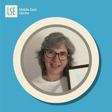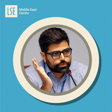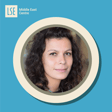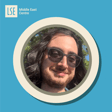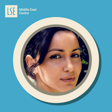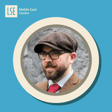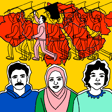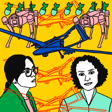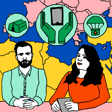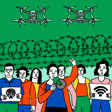Become a Creator today!Start creating today - Share your story with the world!
Start for free
00:00:00
00:00:01

Episode 7: Madawi al-Rasheed on Saudi Arabia, Activism, and Research in Repressive Contexts
In this episode, Anne Kirstine invites Madawi al-Rasheed to speak about her research on Saudi Arabia. Madawi discusses how her work has been influenced by her family background and political engagement.
Madawi is a Visiting Professor at the LSE Middle East Centre. Her list of publications includes no fewer than 15 books on social change, religion, gender, and politics in Saudi Arabia. Madawi has been featured in numerous documentaries and leading media outlets, voicing her opinions on matters related to Saudi Arabia.
Transcript
Introduction to Researcher Identity
00:00:03
Speaker
Hello and welcome to Conversations on Positionality, a podcast brought to you by the LSE Middle East Centre. My name is Anne Kirsten Rohn, I'm a visiting fellow at the Centre and in this podcast I've set out on a journey to explore how who we are as researchers shapes the work we do.
00:00:21
Speaker
How does our gender, age and national backgrounds influence our relations with people in the field? And what are the challenges and opportunities that come with having different research or positionalities?
00:00:34
Speaker
Today,
Madawi's Career and Influence
00:00:35
Speaker
I'll delve into these and many more questions together with Madawi and La Rashid. Madawi is a visiting professor of social anthropology here at the LEC Middle East Centre and has previously helped positions at a range of prestigious institutions including King's College and University of Oxford.
00:00:52
Speaker
Her list of publications includes no less than 15 books which explore the interplay between politics, social change, religion and gender in Saudi society and its impact locally, regionally and internationally. And her latest book, The Sun King, Reform and Repression in Saudi Arabia, came out with her publishers in 2020.
00:01:13
Speaker
Besides her academic work, she also acts as an independent advisor to government, intergovernmental and non-governmental organizations. And she's featured in numerous documentaries and leading media outlets, voicing her opinions on Saudi elite and on Western foreign policies. So I think it's fair to say that she's one of the most vocal voices on Saudi Arabia, both academically and also in the public debates. So welcome to the podcast, Madawi. It's a pleasure to have you with me. Thank you, Anne.
00:01:43
Speaker
Madawi,
Understanding Positionality
00:01:44
Speaker
as a social anthropologist, you have studied the concept of positionality from a theoretical perspective, you've taught and supervised students about it and you've dealt with it in practice throughout your research, of course. So if you should summarise what lies at the essence of the concept, what will you then say?
00:02:03
Speaker
Positionality, in my view, is a position that involves two partners, the researcher and the interviewees or the society that they plan to do research in. So it is an interaction between two groups of people who may or may not share the same perception of the project of the research they're doing.
00:02:27
Speaker
So let me just go back to the 1980s when I started my work on Saudi Arabia as a PhD student. I belonged to that generation where the word positionality wasn't fashionable, especially in the department where I studied. I did my PhD at Cambridge University with Professor Ernest Gellner and the positionality debate wasn't really taught. It was actually dismissed.
00:02:54
Speaker
because quite a lot of the supervisors there thought of themselves as doing scientific research, and there is a world out there that we all see empirically. We can assess it, and if somebody else goes there, they assess it in the same way because the data is out there.
00:03:14
Speaker
So I did my PhD with that sort of intellectual background. But when I came to publishing my PhD, I had to convert it into a book. And I happened to have a conversation with another professor who comes from the positionality debate armed with the latest theories and critique of the previous position.
00:03:36
Speaker
So I became aware of who the researcher is and this identity, this position, this context might influence research. In the book, which was based on my PhD, Politics in an Arabian Oasis, I did include in the introduction a very long discussion of me and my positionality. So from that moment, I think I became aware of
00:04:03
Speaker
It's not only the identity, but it's also the context in which research takes place. So it's about the position of the researcher and the interviewees in a particular location. It is not enough that you as a researcher is aware of your positionality. You have to include in this positionality the views and the perceptions of the people you are interviewing. They don't just see you as a researcher.
00:04:32
Speaker
And when you are a native of the region that you are studying like myself, there are sort of caveats that have to be explored.
00:04:43
Speaker
And
Identity's Role in Research
00:04:44
Speaker
could you perhaps say a little bit more about these caveats that come with your particular identity? So my identity, you know, it can go very local. With Saudis, for example, they know that I come from a particular family with a particular history in Saudi Arabia.
00:05:02
Speaker
And they see me through that prison. I can't change that. It's my name. It's my identity that they allocate to me. But they also see me as an academic, as someone who studied in a British university, as somebody who publishes books, who teaches. They also see me as a woman. And I can't change that. This is their perception. Yes, of course, it gets adjusted and modified throughout the process of research.
00:05:29
Speaker
But there are certain constants through which they place me in the context of the interview and even intimately when I visit them regularly, when I see them, when I talk to them. So maybe for those listeners who aren't that familiar with Saudi politics and history, could you explain a little bit more about your family background and how that affects your research?
00:05:52
Speaker
Yes, my family comes from the northern part of Saudi Arabia. It's Al Rashid and anybody can Google that name and they find that the history of Saudi Arabia cannot really be written without inserting the Al Rashid in it simply because my family used to control part of Saudi Arabia and they later lost to the expansion of the Al Saud in 1921
00:06:18
Speaker
So there is that kind of history, there is also this perception that we were rivals to the Al-Sawud, and there is a political context in which people see me. Quite a lot of them see the research I do as a way of revenge, the loss of my family's dynasty.
00:06:37
Speaker
That kind of argument is redundant now because there are members of my family who are living in Saudi Arabia. And I do the research because I've always been interested. But the moment I started writing my PhD, I was on the radar of the Saudi government. I was seen as a dissident or an activist simply because I was critical. I always called for democracy, for political participation, in addition to my academic work.
00:07:07
Speaker
And this makes me in a very, you know, special position that not perhaps every researcher finds themselves in. I can imagine. But as you say, your family background also intersects with other aspects of your identity. For instance, you mentioned gender before as one of these aspects. And I was wondering if you could elaborate on how you reflect on the rule of your gender.
00:07:33
Speaker
I
Gender's Impact on Research
00:07:34
Speaker
don't consider that there is a category of women or gender that applies in every positionality situation. My gender is intersected by my other identities as an academic, as a Rashid woman, etc. But there is an interesting story that I will share with you and the audience. When I was at Cambridge doing my PhD in 1985-86,
00:08:02
Speaker
I used to go to the Faculty of Oriental Studies, and I met quite a lot of people there. Some of them were academics, but there were also retired colonial officers who are still around, and they come and attend the seminar. So I met someone who said to me, oh, you are Saudi women. You must be studying women in Saudi Arabia. And I said to him,
00:08:25
Speaker
Actually, no, I'm studying tribal politics and state formation in Saudi Arabia. I wasn't studying women because most anthropologists don't just study women, they study gender relations. Anyway, I wasn't going to go into that debate with him, but the whole episode demonstrated to me how I'm perceived as a Saudi woman at Cambridge in the early 1980s.
00:08:50
Speaker
So there are certain assumptions that come with the gender. But in terms of my later research, I did interview Islamists, I did interview other Arabs, not necessarily Saudis. And gender does open some doors for women like myself, but also it creates some challenges.
00:09:12
Speaker
And could you perhaps say a bit more about these advantages and challenges? Because, for instance, I know you've done interviews with Islamists and Salafists. How did they perceive your gender and how did you navigate your gender when interviewing these groups of people?
00:09:27
Speaker
With the Islamists, they didn't really see me as a threat. And when I interviewed the Salafis, I did put a veil on simply because we would be in a sitting room or in a cafe together, and they wouldn't like to be seen with an unveiled woman like myself.
00:09:44
Speaker
So I did respect what they expect from a Saudi woman. Had I been a Western woman, perhaps I wouldn't have had to put the veil on. And I didn't see a problem with that. I wasn't really like, you know, succumbing to pressure or accepting their ideas about the proper Muslim woman. In fact, it was just to facilitate the interview and both of us felt more comfortable.
00:10:09
Speaker
So that is one side of the story. However, there is also the age. I was a bit older when I started doing this research. By the time I had published, I went and interviewed men. They accepted me as someone who has accomplished certain achievements and perhaps they wanted me to tell their stories. So they were very welcoming.
00:10:34
Speaker
That's very interesting. And I think it is in general interesting that you point to the advantages that come with being a woman doing research in a conservative male-dominated environment. Because this is not the first time someone has mentioned this on the podcast. But I'm also curious if you could give an example of some of the challenges you face as a woman.
Navigating Gender Challenges
00:10:57
Speaker
So for example, in one of my research projects in London, I was interviewing from people and men and they gave me an appointment in their own apartment on a Sunday morning at like 10 o'clock. So as a punctual person, I wanted to be there on time and I hesitated as an Arab woman going into this person's private
00:11:24
Speaker
apartment. But nevertheless, I knocked on the door and waited and waited. Then this person opened the door and he was wearing his pajamas. And I thought, oh, I apologize. It's 10 o'clock and you said I should come at 10. He said, no, no, no problem. You come in. I'll make you a cup of coffee while he was still wearing his pajamas.
00:11:45
Speaker
I don't know, if I were a woman, would I have felt embarrassed to walk into someone's apartment if he's just walking up in a pyjama? So this kind of, you know, being women, it brought it to me that perhaps I should have met him in a cafe. I shouldn't have accepted to meet him in his apartment. Anyway, the interview went perfectly well.
00:12:07
Speaker
and we were all sort of aware of our positionality. He apologized for meeting me in his pajamas and we kept seeing each other afterwards in less private places and with full clothes. So these kind of anecdotes draw one's attention to the challenges that a woman can face.
00:12:33
Speaker
And here I'm talking about being in London doing this research. I'm not talking about traveling to far away places where perhaps you have to have someone with you, especially if you are a native researcher.
00:12:48
Speaker
Could you elaborate a bit more on these differences between being native and being a foreigner or maybe say a Western woman like me in the context of Saudi Arabia? I felt that my Western colleagues and women may not have been subjected to the same scrutiny as I was. I remember reading early anthropological accounts of field work
00:13:14
Speaker
and the Western women were treated as honorary men in some context in Africa or in Asia, etc. Well, there was no way I'm going to be treated as an honorary man in my own country or among my own group. The gender roles are pretty well defined, and I can't pass on as an honorary male researcher. It's just never happened to me.
00:13:39
Speaker
When you tell me about these experiences, I can't help thinking about the point you raised in the beginning of our conversation, which is that positionality is not just about the way you understand yourself as a researcher, but also about the way others view you.
Perceptions and Political Activism
00:13:55
Speaker
So I'd be very curious to know, during your fieldwork, how did you get to know your interlocutist's perceptions of you?
00:14:03
Speaker
First of all, the people I interviewed, they know me through my writings, through my appearances in the media. They already have perceptions of me. So when I meet them, there is this moment when they interview me.
00:14:20
Speaker
rather than me interviewing them. And they will ask me questions about my story, my life, and it takes a long time before I actually start asking the questions. So their questions alert me to what they want to know and whether
00:14:36
Speaker
knowing me personally in the context of the interview would lead them to change their views or modify their perceptions of me. I'm sure my Western colleagues are also interrogated in the field, and this is not just specifically to me. They get asked about their family life, whether they are married or not, which seems to be a very common question that female researchers from Western countries
00:15:05
Speaker
and from the Middle East are asked, but perhaps there is more of the personal story that is political that my interlocutors are interested in. They see me not simply as an academic and I don't see myself as simply an academic because I have other interests
00:15:26
Speaker
and I have my political ideas which I make very clear, perhaps not in my books but in my media appearances and my other writings. I'd be curious to hear a bit more about your political engagement. When did it start and how does it relate to your research more generally?
00:15:46
Speaker
Well, when I started as a PhD student, I didn't really see myself as a political actor. Yes, I did have political views and ways of expressing myself. I used to write in the school magazine in Arabic. When I was in Lebanon at school, I used to write poetry. So there was this activist part of me as a young student.
00:16:12
Speaker
But then from sort of 1980s, mid-1980s, I focused on my academic work. But then the political creeps into the academic. There is no escaping that reality, regardless of what people say to you, that they are the objective observers and they have no political views. They suspend their politics.
00:16:37
Speaker
I feel like the choice of the project, even before we talk about positionality, is highly political. So in my case, I chose to focus on questions that bothered me. So for example, religion and politics, how do they come together? So once I accumulated a body of knowledge,
00:16:59
Speaker
I feel like my academic work enhanced my political activism because my activism was guided by what I found. To just give you an example. So there is this narrative in Saudi Arabia, which is an official narrative, that society was actually blasphemous in the 20th century, even after centuries of Islam being spread.
00:17:24
Speaker
And they had to be Islamized or re-Islamized at the hands of the state by adopting the Wahhabi tradition, which is the religious tradition of the Saudi state. So I felt uncomfortable having grown up in Saudi Arabia and seen my grandmother pray and conform to being a good Muslim woman.
00:17:46
Speaker
So I researched this relationship between religion and politics in Saudi Arabia, and then came to the conclusion that it wasn't true that the Arabian population was blasphemous, and thanks to the role of the Al Saud leadership, they became Muslims again in the 20th century. So from that academic position, I started campaigning for debunking this narrative about how the Arabian population was not Muslim enough.
00:18:15
Speaker
It's very interesting for me to hear your reflections on the relationship between research and activism because it's a topic I think about a lot myself to be honest. Especially because engaging in political debates about your subject matter is not always without cost. Especially if your subject matter is Saudi Arabia, I imagine.
Risks of Activism
00:18:35
Speaker
So I was wondering if you could share your views on this larger question about when we as researchers should step into the public debate and when it's better for us to step back and refrain from sharing our political views.
00:18:51
Speaker
Well, unfortunately, I have met colleagues who specialize in Saudi Arabia who never voice any political opinions on what they see in Saudi Arabia in public simply because they want to maintain access to Saudi Arabia.
00:19:10
Speaker
So it is a positionality that is purely guided by self-interest. If you want to promote your career and do more fieldwork and salary, you have to be careful what you say and what you publish about the country. You will be denied the visa or you will be deported.
00:19:28
Speaker
In my case, I knew from the very beginning that because of my critical voice, I will be denied access to Saudi Arabia. And this is exactly what happened. In fact, I had my nationality withdrawn in 2005 because of my political views on gender issues in Saudi Arabia.
00:19:51
Speaker
Yeah, and as you've told me, this meant that you had to continue your research from outside Saudi Arabia, for instance, by interviewing exiles or interviewing Saudis from outside the country. But I'm still wondering, isn't it risky for people in Saudi Arabia to participate in your research or even be associated with you, given the critical voice you are to the regime?
00:20:17
Speaker
Yes, so in one of my books, A Muted Modernist, I looked at the intellectual production of a group of Islamists in Saudi Arabia. And these are sort of modernist, I call them, in the sense that they are not Salafis,
00:20:36
Speaker
They are trying hard to combine Islam with some kind of political thought that frees the country from absolute monarchy. And unfortunately, all of them, with the exception of one, had been imprisoned.
00:20:52
Speaker
And according to Amnesty International, one of the charges against those intellectuals was that they had my books as PDF files on their computers. So one has to be really careful in a repressive environment what to say to people.
00:21:14
Speaker
how you represent their ideas and their voice then and there is no protection there is no guarantee actually that they will be safe and quite a lot of journalists come to me and ask me this question after they spend some time in Saudi Arabia interviewing everybody
00:21:36
Speaker
that the government allows them to interview, they ask me questions about certain policy or certain issues and they say everybody we met is so happy with the situation but we know they are under pressure and if they are talking to us on record they're not going to say what they truly believe in.
00:21:58
Speaker
I can imagine there are many who would seek your advice in such cases. And speaking
Advice for Researchers
00:22:03
Speaker
of advice, there's one last question I'd like to ask you before our time is up, and that is looking at your experiences. If you were to give an advice to an early career scholar who was just about to embark on a similar research journey to yours, what would you say to them?
00:22:20
Speaker
My only advice is honesty, is to be open and honest about who you are, what you are there for, and what your plans are. Telling lies or avoiding certain topics in order to avoid being questioned, etc.
00:22:41
Speaker
will lead the researcher into trouble. Obviously honesty is not sufficient, but it's the beginning of a research career that is not based on deviance or on dishonesty.
00:22:58
Speaker
I think that's a nice way to end our conversation, Madawi, which for me at least has been extremely inspiring and thought provoking. And I hope it's been so for the listeners as well. Thank you so much for taking your time to join the podcast and for sharing your experiences and thoughts on positionality. It's been a pleasure talking to you. Thank you for having me.
00:23:23
Speaker
And that was all I had for this episode of Conversations on Positionality. Thanks to the team at the LSE Middle East Centre for their work on the podcast, and thank you to the listeners for tuning in. In the next episode, I'll be talking to Nicola Pratt from Warwick University about her research on gender, international relations and human rights in the Middle East. I hope you'll listen in.
